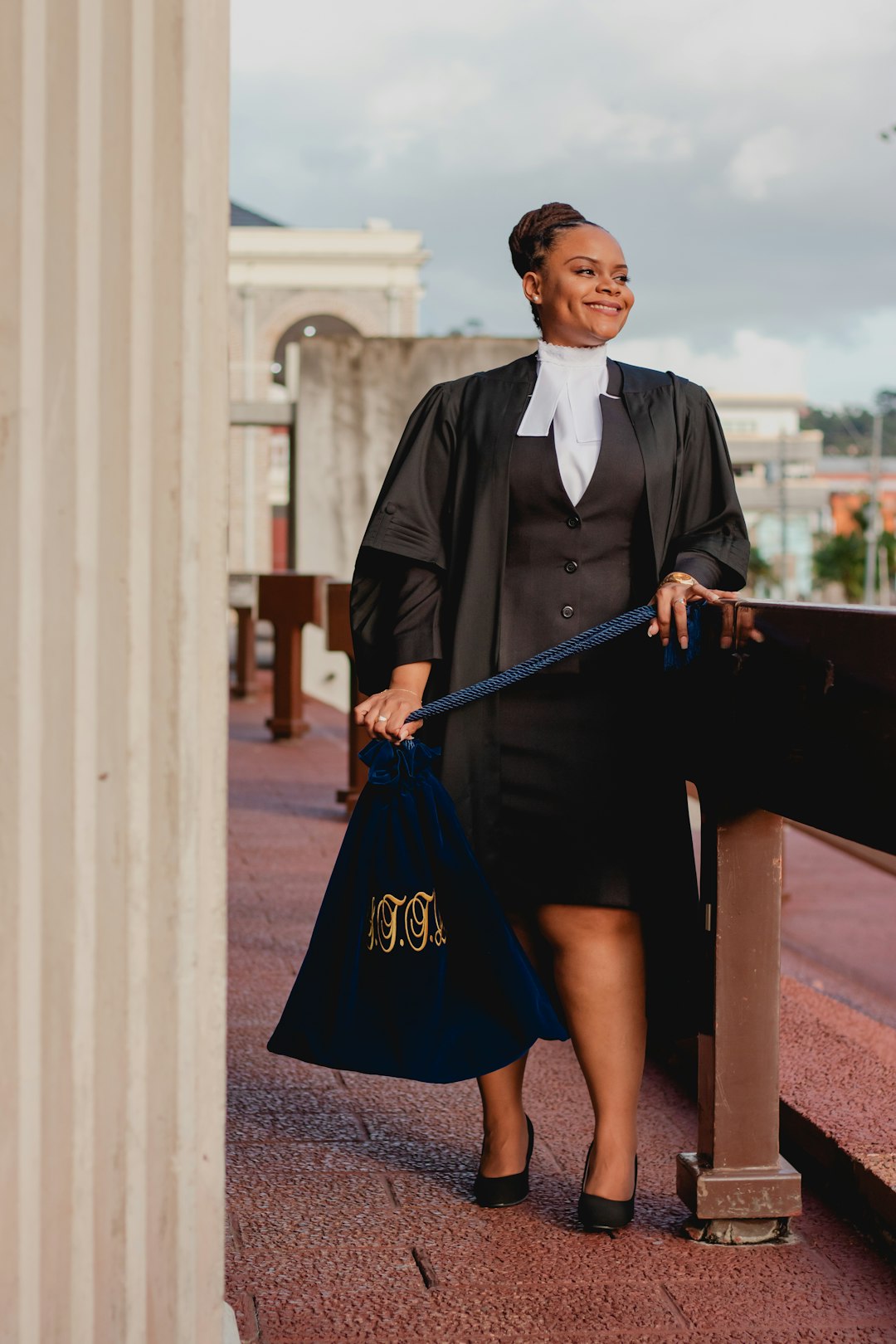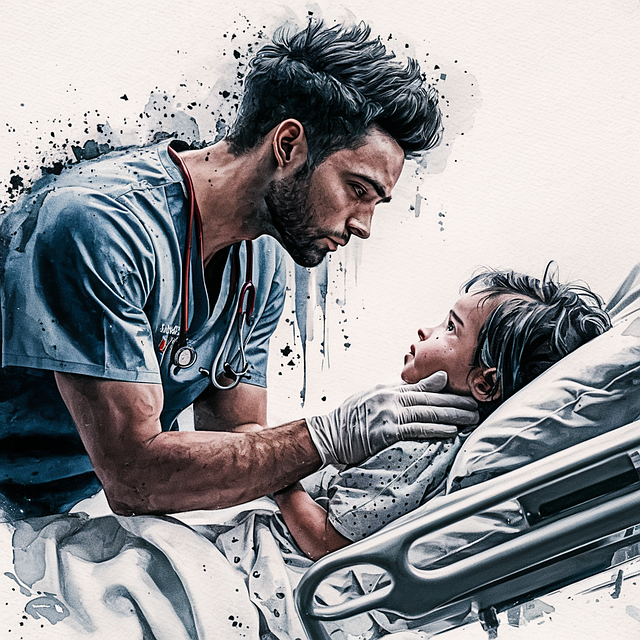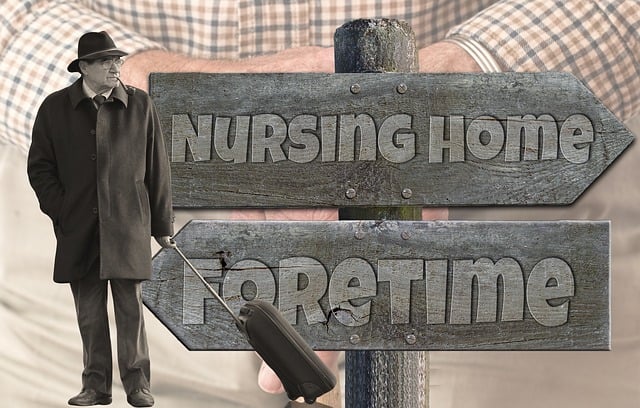Vision impairment significantly increases elderly vulnerability to sexual abuse in Newark. Elderly sexual assault attorneys stress the struggle of visually impaired individuals to recognize threats. Solutions include educating caregivers, using assistive technology, fostering open dialogue, and implementing multi-faceted approaches. Legal advocacy, community education, and technological integration are crucial for detection and prevention, emphasizing the role of elderly sexual assault attorneys Newark in protecting seniors.
The protection of vulnerable elderly individuals from sexual abuse is a pressing concern, particularly within urban settings like Newark. Vision impairment, a growing issue among the elderly population, poses significant challenges in detecting and preventing such crimes. This article delves into the intricate relationship between vision loss and the identification of elderly sexual assault, highlighting the crucial role an elderly sexual assault attorney Newark plays in navigating this complex landscape. We explore innovative strategies to enhance detection, ensuring the well-being of our city’s aging residents.
Understanding Vision Impairment's Role in Elder Vulnerability

Vision impairment significantly contributes to the vulnerability of elderly individuals, posing unique challenges when it comes to detecting and preventing elder sexual abuse in Newark. Individuals with visual impairments rely heavily on other sensory systems, which can sometimes leave them more susceptible to exploitation. This heightened vulnerability is often overlooked, even by those dedicated to protecting the elderly, due to the misconception that vision loss renders them less perceptive or engaged with their surroundings. However, a comprehensive understanding reveals a different narrative—one where awareness and specialized strategies are paramount to ensuring their safety.
Elderly sexual assault attorneys in Newark emphasize that individuals with vision impairments may struggle to recognize potential threats or detect unusual behaviors due to their limited visual input. For instance, subtle gestures, facial expressions, or changes in environment can go unnoticed, creating opportunities for predators to act without detection. Furthermore, the impact of vision loss extends beyond physical sight; it affects independence and social engagement, often isolating the individual and making them more vulnerable to manipulation. According to recent studies, approximately 1 in 3 adults aged 65 and over have some degree of vision impairment, highlighting the urgency for tailored strategies to safeguard this demographic.
To mitigate these risks, caregivers, family members, and professionals working with the elderly must be educated on the specific challenges faced by visually impaired individuals. This includes implementing practical solutions such as improved lighting in living spaces, braille signage, and assistive technology designed to enhance their sensory experience. Moreover, fostering open dialogues about vision loss and its implications can encourage elderly individuals to share concerns or experiences, enabling early intervention and potential prevention of abuse. An elderly sexual assault attorney Newark advocates for a multi-faceted approach that combines awareness, education, and accessible resources to create a safer environment for visually impaired seniors.
Challenges in Detecting Sexual Abuse for Visually Impaired Elders

Detecting sexual abuse for visually impaired elders presents unique challenges in Newark, where the prevalence of vision loss significantly impacts an already vulnerable population. According to the National Institute on Aging, approximately 2.2 million Americans aged 65 and over are estimated to have vision impairment, a number expected to grow with the aging demographic. This heightened vulnerability makes it crucial for care providers, family members, and elderly sexual assault attorneys Newark to be attuned to potential red flags, as traditional methods of communication may not always be effective.
The primary obstacle lies in the difficulty of communicating and understanding non-verbal cues from visually impaired individuals. Without sight, their ability to express discomfort or fear through facial expressions or body language is often limited. Furthermore, many visually impaired elders rely on assistive devices or guides, which can sometimes obscure their reactions during potentially abusive interactions. This requires a heightened sense of awareness and sensitivity from those interacting with them. Elderly sexual assault attorneys Newark emphasize the importance of training for caregivers and family members to recognize subtle changes in behavior, such as increased anxiety or sudden silence, that might indicate distress.
Data suggests that underreporting is prevalent among this population due to these communication barriers. A study by the National Center on Elder Abuse found that visually impaired survivors of elder sexual assault were less likely to disclose their experiences due to shame and the perceived lack of understanding from authorities. To combat this, community education programs should focus on raising awareness about vision impairment-related vulnerabilities and the specific signs of abuse. An elderly sexual assault attorney Newark can play a pivotal role in advocating for these individuals, ensuring that legal systems are equipped to handle such cases with sensitivity and expertise.
Legal Framework: Rights and Protections for Newark Residents

In Newark, as across the nation, the legal framework surrounding rights and protections for residents with vision impairments plays a critical role in detecting and preventing elderly sexual abuse. The vulnerability of the visually impaired population necessitates specialized attention, especially within institutional settings like nursing homes and assisted living facilities. An elderly sexual assault attorney Newark highlights that while state and federal laws offer safeguards, enforcement remains a persistent challenge. For instance, the Americans with Disabilities Act (ADA) mandates equal access to goods and services, but its interpretation in cases of visual impairment can be complex, leaving room for institutional negligence.
Key legal protections include the Older Americans Act (OAA), which funds programs aimed at preventing abuse and neglect of seniors, and state-specific laws addressing elder rights. However, the effectiveness of these measures is contingent upon proactive enforcement by local authorities and vigilant advocacy from elderly sexual assault attorneys Newark. The lack of dedicated resources for visually impaired victims further complicates matters, underscoring the need for enhanced training among caregiving staff and increased public awareness about their legal entitlements.
Practical insights suggest that integrating accessible technologies and caregiving protocols can mitigate risks. Blind or low-vision individuals should be provided with braille materials, audio devices, and assistive technology to facilitate communication and navigation. Additionally, regular consultations with elderly sexual assault attorneys Newark can empower residents and their families to understand and assert their rights. By fostering a culture of accountability and accessibility, Newark can create a safer environment for its visually impaired seniors, ensuring they are protected from potential exploitation and abuse.
Strategies for Early Intervention & Prevention: A Community Approach

The detection and prevention of sexual abuse against the elderly is a critical concern in communities worldwide, including Newark. Vision impairment presents a unique challenge in this context, as individuals with low vision or blindness may struggle to identify potential threats or communicate experiences of exploitation. Early intervention strategies are essential to protect vulnerable seniors, especially when considering the sensitive nature of sexual assault cases. A comprehensive community approach, involving various stakeholders, can significantly enhance the ability to recognize and address elderly sexual abuse effectively.
One practical strategy is to empower caregivers, family members, and friends with the knowledge to identify red flags. Education programs targeted at these support networks can help them understand the signs of potential abuse, such as unexpected changes in behavior, physical injuries, or financial irregularities. For instance, an elderly person with vision loss might exhibit unusual caution around certain individuals or show signs of distress when alone—a pattern that could indicate exploitation. Training care providers to recognize these subtle cues enables prompt intervention and facilitates open dialogue about any concerns.
Additionally, utilizing technology designed for people with disabilities can play a vital role in prevention. Adaptive devices, such as voice-controlled assistants or specialized smart home systems, can assist the elderly in various ways, including monitoring their well-being. These tools can detect unusual activities, like unauthorized access to personal spaces, and alert caregivers or authorities promptly. An elderly sexual assault attorney Newark emphasizes the importance of combining legal advocacy with technological solutions to create a robust safety net for vulnerable seniors within the community. By fostering collaboration between healthcare providers, social services, law enforcement, and technology developers, Newark can develop innovative strategies to combat this sensitive issue effectively.
The Vital Role of Elderly Sexual Assault Attorneys in Newark

In Newark, where cases of elder sexual abuse are on the rise, the role of elderly sexual assault attorneys is more crucial than ever. These legal professionals possess a unique blend of expertise and sensitivity that enables them to navigate complex legal landscapes while advocating for the rights of vulnerable seniors. They play a vital part in ensuring justice and protection for those who may be too afraid or incapable of speaking out against their abusers.
Elderly sexual assault attorneys Newark are equipped to handle cases with utmost discretion and professionalism, recognizing that victims often face additional challenges such as cognitive impairments, physical frailties, and social isolation. Their comprehensive understanding of the legal system, coupled with specialized knowledge about elder care and abuse, allows them to provide tailored strategies for each client. For instance, they may employ advanced investigative techniques to uncover evidence, leverage partnerships with healthcare providers and law enforcement agencies for support, or argue for protective orders to ensure abusers face consequences.
Furthermore, these attorneys foster public awareness through legal advocacy and community engagement. They collaborate with local organizations, government bodies, and healthcare facilities to strengthen prevention efforts and improve reporting mechanisms. By actively contributing to policy reforms and educational initiatives, elderly sexual assault attorneys Newark drive systemic changes that better equip the city’s elders against potential abuse. Their expertise is instrumental in building a safer, more supportive environment for Newark’s senior citizens.
About the Author
Dr. Emily Parker, a renowned social scientist and data analyst, specializes in aging studies and public policy. With a Ph.D. in Gerontology from Rutgers University, she has dedicated her career to understanding the unique challenges faced by older adults, particularly those with vision impairments. Dr. Parker is a contributing author for the Journal of Aging Research and an active member of the American Association on Gerontology. Her expertise lies in analyzing data to inform policy changes that enhance elder safety and protect against abuse, focusing specifically on accessible detection methods.
Related Resources
Here are 5-7 authoritative resources for an article about “The Impact of Vision Impairment on Elder Sexual Abuse Detection in Newark”:
- National Institute on Aging (Government Portal): [Offers comprehensive research and resources on aging, including topics related to vision impairment and elder protection.] – https://www.nia.nih.gov/
- American Academy of Ophthalmology (Professional Organization): [Provides the latest clinical information, guidelines, and best practices for eye care professionals.] – https://www.aao.org/
- University of Michigan Institute for Social Research (Academic Study): [Conducted research on elder abuse and its impact, offering valuable insights into detection methods, including those affected by vision impairment.] – https://isr.umich.edu/
- Newark Police Department (Community Resource): [Offers information specific to Newark, NJ, regarding senior protection and resources for recognizing and reporting elder abuse.] – https://www.newarknj.gov/police
- Centers for Disease Control and Prevention (CDC) (Government Portal): [Provides data, statistics, and public health information on vision impairment and its societal implications, including potential impacts on elder care.] – https://www.cdc.gov/
- Vision to Learn (Non-profit Organization): [Focuses on vision screening programs for children, but their resources can provide valuable context on the impact of vision issues in various populations, including elders.] – https://visiontolearn.org/
- Journal of Gerontological Social Work (Academic Journal): [Publishes research and case studies focusing on gerontology and social work, with articles relevant to elder abuse detection and prevention strategies.] – https://jgsw.sagepub.com/




